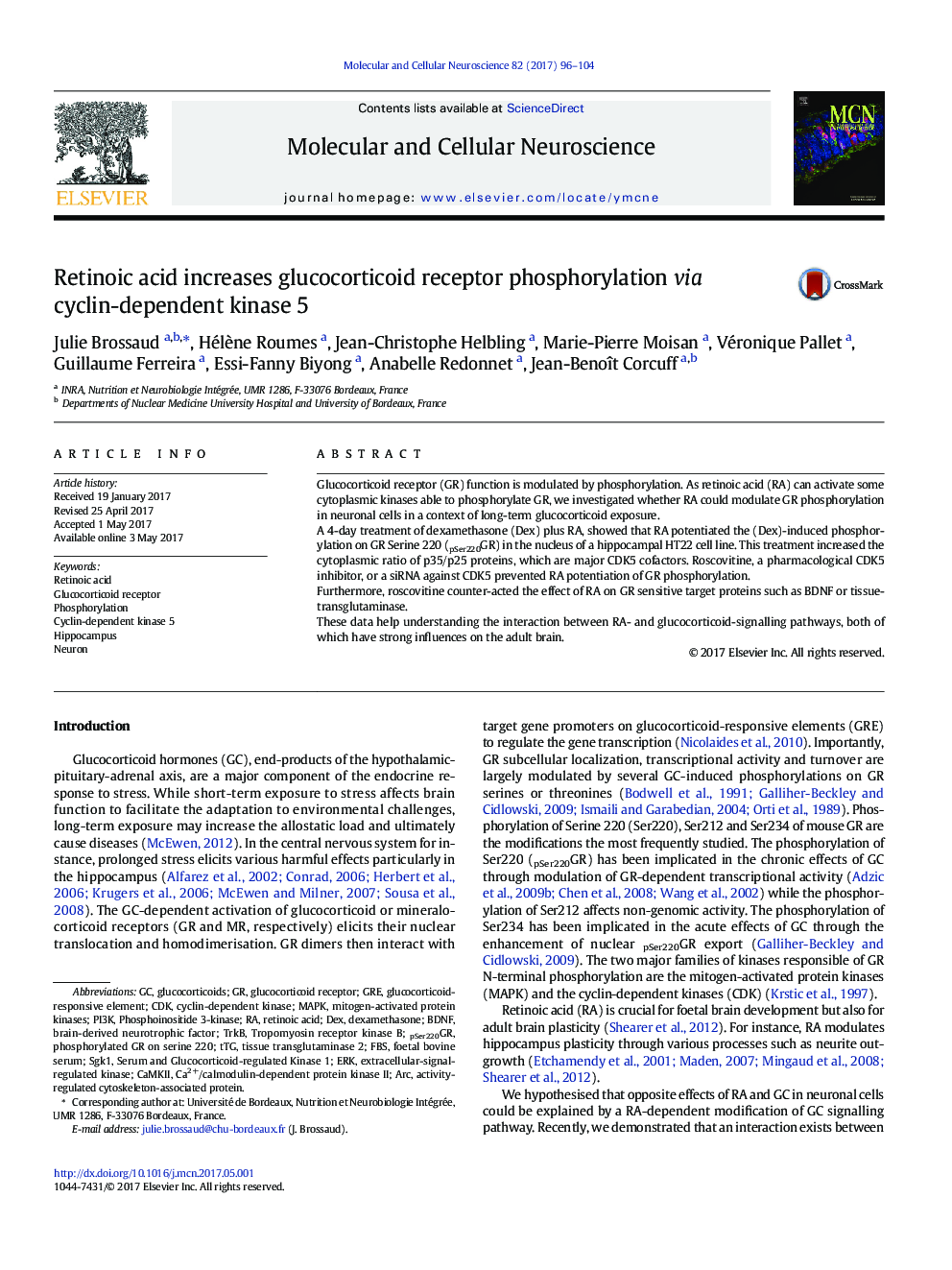| Article ID | Journal | Published Year | Pages | File Type |
|---|---|---|---|---|
| 5534349 | Molecular and Cellular Neuroscience | 2017 | 9 Pages |
â¢We investigated the retinoic acid and glucocorticoid pathways in the brain.â¢We hypothesised that retinoic acid modulate the glucocorticoid receptor activity.â¢Retinoic acid potentiated glucocorticoid receptor phosphorylation in the HT22 cells.â¢This phosphorylation is dependent on cyclin-dependent kinase 5 and p35/25 ratio.
Glucocorticoid receptor (GR) function is modulated by phosphorylation. As retinoic acid (RA) can activate some cytoplasmic kinases able to phosphorylate GR, we investigated whether RA could modulate GR phosphorylation in neuronal cells in a context of long-term glucocorticoid exposure.A 4-day treatment of dexamethasone (Dex) plus RA, showed that RA potentiated the (Dex)-induced phosphorylation on GR Serine 220 (pSer220GR) in the nucleus of a hippocampal HT22 cell line. This treatment increased the cytoplasmic ratio of p35/p25 proteins, which are major CDK5 cofactors. Roscovitine, a pharmacological CDK5 inhibitor, or a siRNA against CDK5 prevented RA potentiation of GR phosphorylation.Furthermore, roscovitine counter-acted the effect of RA on GR sensitive target proteins such as BDNF or tissue-transglutaminase.These data help understanding the interaction between RA- and glucocorticoid-signalling pathways, both of which have strong influences on the adult brain.
